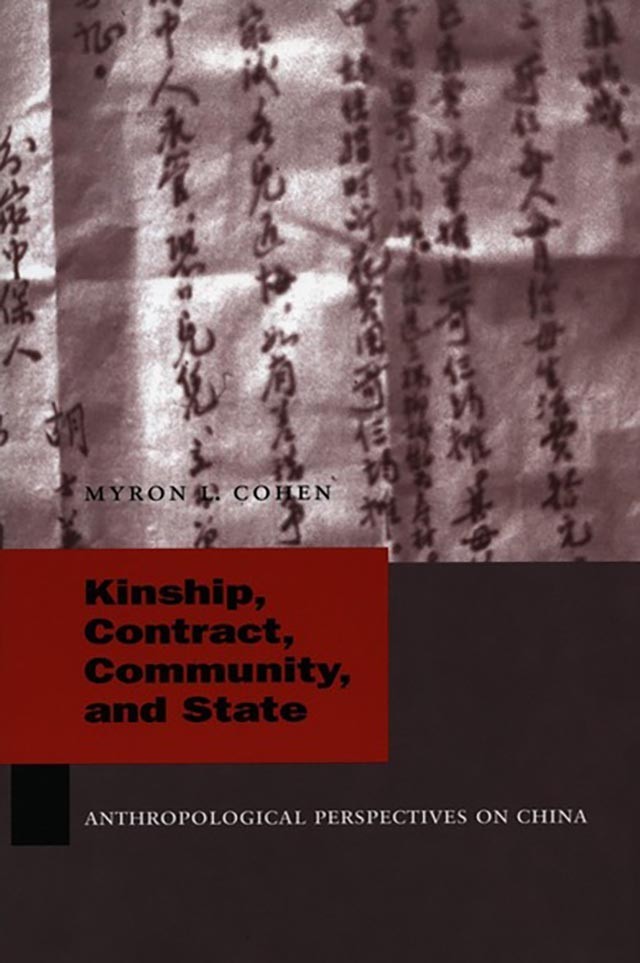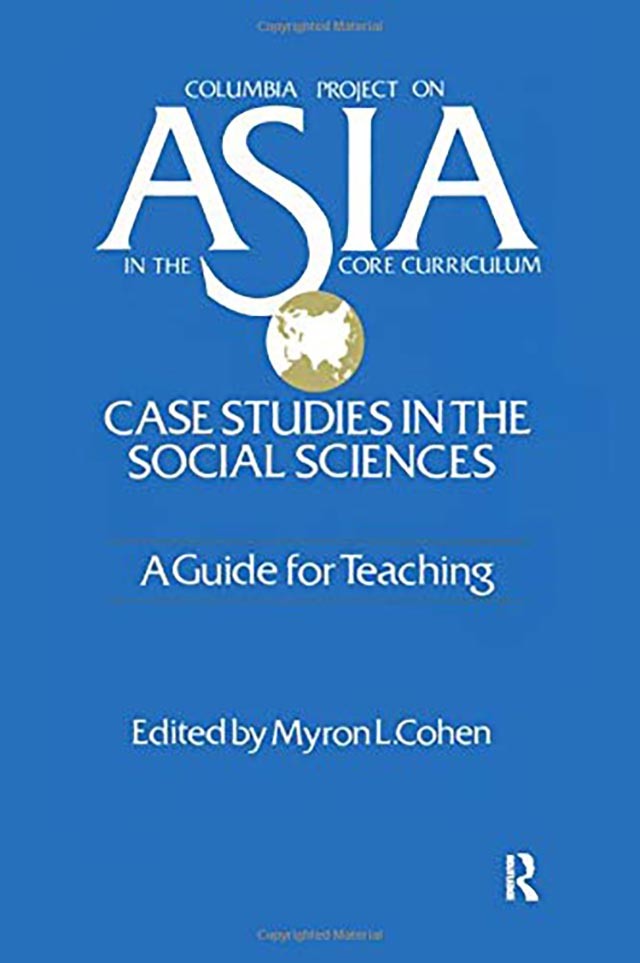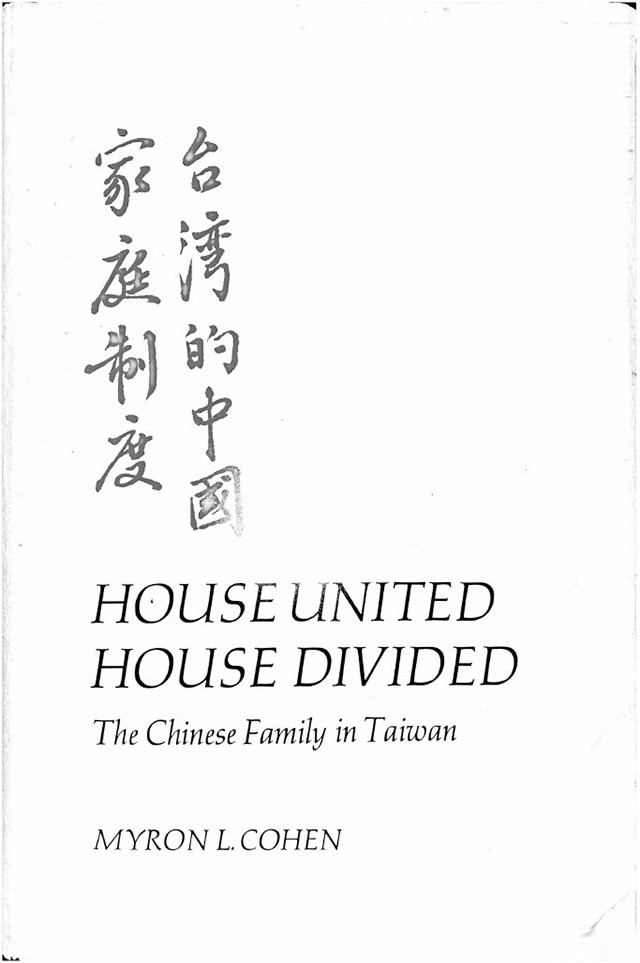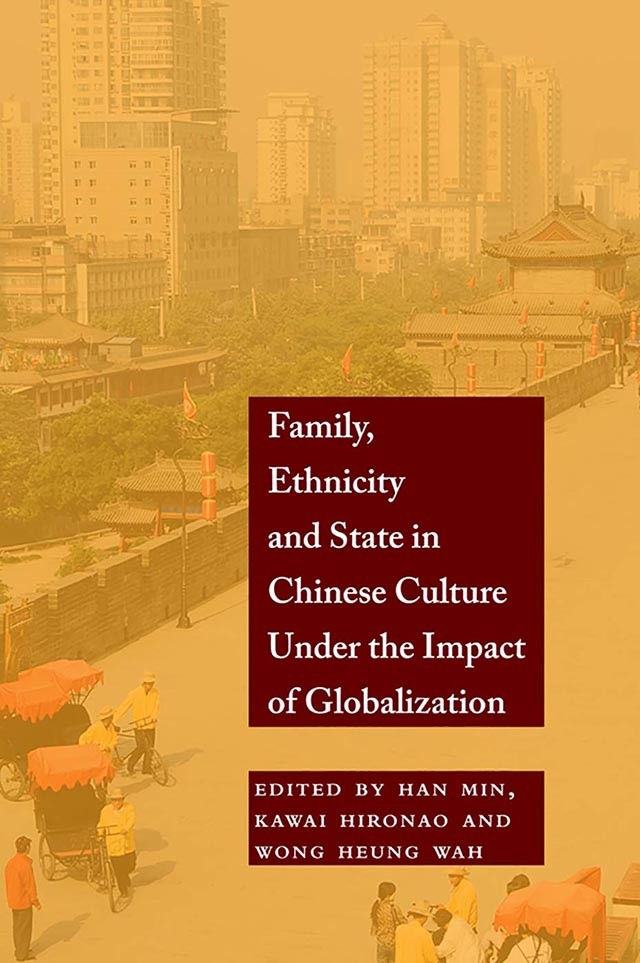Myron Cohen
Research Interests
Research Concentrations
Historical Anthropology, Family and Kinship, Economic Anthropology, State in Society, Legal Anthropology
Regions
East Asia; China, Taiwan
Biography
Myron L. Cohen’s research has focused on Han Chinese culture and society during late imperial and modern times. His fieldwork in Taiwan and in villages in northern, eastern, and western mainland China has been concerned with uncovering commonalities and variation as among widely separated Han Chinese communities, especially with respect to family and community arrangements. His present writing is on the historical anthropology of a community in southern Taiwan during the imperial era; among other issues, it explores the impact of the Qing imperial state on local society; the wide-ranging use of contracts and other forms of documentation; and the placing of state, society, and the gods within a coherent cosmological frame. He is a recipient of the Chinese Anthropology Lifetime Achievement Award, presented by the Shanghai Society of Anthropology.
Education
Columbia University, PhD in Anthropology, 1967
2017. “Ethnicity and the Degree-Holding Elite in Qing-Era Taiwan: The 1803 Restoration of the Prefectural Confucian Temple.” In Family, Ethnicity and State in Chinese Culture under the Impact of Globalization, edited by Han Min, Kawai Hironao and Wong Heung Wah, 65-84. Encino: Bridge21.
2005. Kinship, Contract, Community, and State: Anthropological Perspectives on China. Stanford: Stanford University Press.
2001. “Commodity Creation in Late Imperial China: Corporations, Shares, and Contracts in One Rural Community.” In Locating Capitalism in Time and Space: Global Restructuring, Power and Identity, edited by David L. Nugent, 80-112. Stanford: Stanford University Press.
1994. “Being Chinese: The Peripheralization of Traditional Identity.” In The Living Tree: The Changing Meaning of Being Chinese Today, edited by Tu Wei-ming, 88-108. Stanford: Stanford University Press.
1993. Editor. Asia Case Studies in the Social Sciences: A Guide for Teaching. Columbia Project on Asia in the Core Curriculum. Armonk: M. E. Sharpe.
1988. “Souls and Salvation: Conflicting Themes in Chinese Popular Religion.” In Death Ritual in Late Imperial and Modern China, edited by James L. Watson and Evelyn S. Rawski, 180-202. Berkeley: University of California Press.
1976. House United, House Divided: The Chinese Family in Taiwan. New York: Columbia University Press.
1968. “The Hakka or ‘Guest People’: Dialect as a Sociological Variable in Southeastern China.” Ethnohistory 15, no. 3: 237-292.



